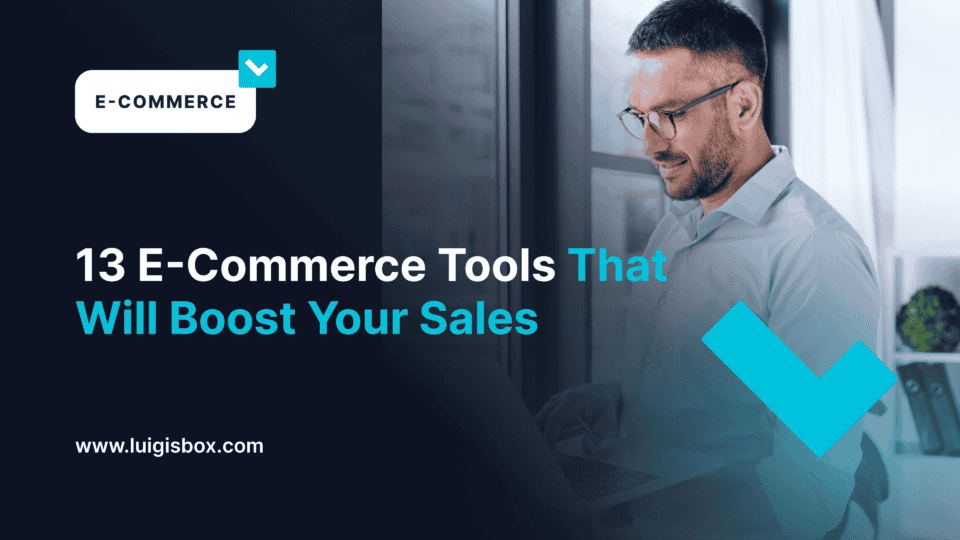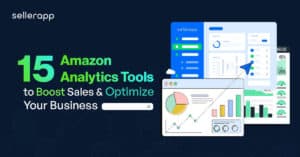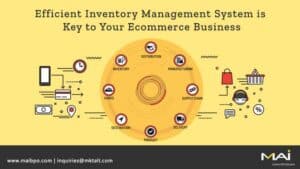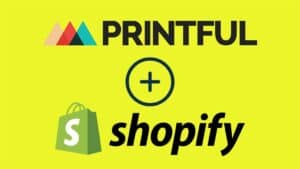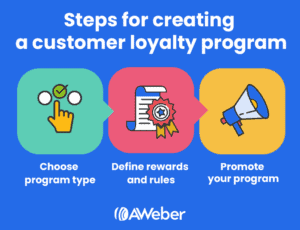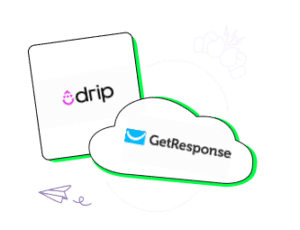Master Ecommerce Success: Tools to Boost Your Online Store
Discover tools and strategies for product sourcing, print-on-demand, and fulfillment that simplify operations while maximizing growth potential.
Introduction: The Power of Ecommerce Tools for Scaling Your Business
Running a successful ecommerce business requires more than just a great product. You need efficient systems in place to manage inventory, handle fulfillment, and find reliable product sources. As your business grows, the complexity of managing these processes can quickly become overwhelming. Fortunately, ecommerce tools are designed to simplify these tasks, allowing you to focus on scaling your business while maintaining quality service.
In this article, we’ll introduce you to the Ecommerce category, diving into three key subcategories: Product Sourcing, Inventory Management, and Fulfillment Strategies. These tools will help streamline your ecommerce operations, increase efficiency, and ultimately boost your profits.
1. Product Sourcing: Find the Right Products for Your Business
Choosing the right products is the foundation of any successful ecommerce business. Whether you’re dropshipping, using print-on-demand, or managing a wholesale inventory, product sourcing tools help you find profitable products that align with your niche.
Benefits of Product Sourcing Tools:
- Supplier Databases: Many sourcing tools connect you with vetted suppliers offering competitive prices and high-quality products.
- Niche Product Research: Use tools to discover trending products within your niche, helping you stay ahead of the competition.
- Automated Dropshipping: If you’re running a dropshipping store, sourcing tools often integrate directly with ecommerce platforms like Shopify or WooCommerce, automating the process of adding products to your store.
Pro Tip: Tools like Oberlo or Spocket are great for beginners looking to jump into dropshipping, offering seamless integration with Shopify and access to reliable suppliers.
2. Inventory Management: Keep Stock Levels in Check
Managing your inventory efficiently is critical to ensuring you can meet customer demand without overstocking or running out of products. Inventory management tools help you track stock levels, automate reordering, and optimize your storage processes.
Why Inventory Management Tools are Essential:
- Real-time Stock Tracking: Automatically update stock levels across multiple channels (your website, Amazon, etc.) as orders come in.
- Low Stock Alerts: Receive notifications when stock levels are running low, allowing you to reorder before running out of popular products.
- Warehouse Optimization: Some tools help optimize how you store products in your warehouse, increasing efficiency and reducing fulfillment times.
Pro Tip: Inventory management tools like TradeGecko or Zoho Inventory integrate well with most ecommerce platforms, offering real-time updates and advanced reporting features.
3. Fulfillment Strategies: Ensure Smooth Order Delivery
Once a customer places an order, it’s all about getting the product to them as quickly and efficiently as possible. Fulfillment strategies and tools are designed to handle everything from warehousing to shipping, ensuring your customers have a seamless experience from start to finish.
What to Look for in Fulfillment Tools:
- Automated Shipping Labels: Automatically generate shipping labels based on order information, cutting down on manual entry errors.
- Third-Party Logistics (3PL) Integration: Some tools allow you to partner with third-party logistics providers, outsourcing your fulfillment process to professionals who can ship faster and at lower costs.
- Customer Notifications: Keep customers informed with automated notifications about the status of their orders, from fulfillment to delivery.
Pro Tip: Fulfillment tools like ShipBob and ShipStation are popular choices for ecommerce stores looking to streamline their shipping process. They also provide order tracking for customers and integrate with platforms like Amazon, Etsy, and Shopify.
Conclusion: Optimize Your Ecommerce Business with the Right Tools
Running an ecommerce business requires juggling many moving parts, from sourcing the right products to managing inventory and fulfilling orders. By leveraging tools that streamline these processes—Product Sourcing, Inventory Management, and Fulfillment Strategies—you’ll not only save time but also ensure your business is poised for long-term growth. Start exploring these ecommerce tools to simplify your operations, enhance your customer experience, and boost profitability.
FAQs
What are the best product sourcing tools for ecommerce?
Some popular product sourcing tools include Oberlo, Spocket, and SaleHoo. These platforms help you find trending products and connect with reliable suppliers.
How can inventory management tools benefit my ecommerce store?
Inventory management tools allow you to track stock levels in real-time, receive low-stock alerts, and optimize your storage processes, helping you meet demand without overstocking.
What are fulfillment tools, and why do I need them?
Fulfillment tools help you streamline the shipping process by automating shipping labels, providing order tracking, and integrating with third-party logistics providers to handle warehousing and delivery.
How do fulfillment tools integrate with my ecommerce platform?
Most fulfillment tools, like ShipBob and ShipStation, offer direct integrations with platforms such as Shopify, WooCommerce, Amazon, and Etsy, making it easy to sync orders and streamline shipping.
Can I use one tool to manage both inventory and fulfillment?
Yes, some tools like TradeGecko offer comprehensive solutions that handle both inventory management and fulfillment, allowing you to manage everything from one platform.
Keywords: Product Sourcing, Inventory Management, Fulfillment Strategies, ecommerce tools, dropshipping, inventory tracking, ecommerce fulfillment, product research.

